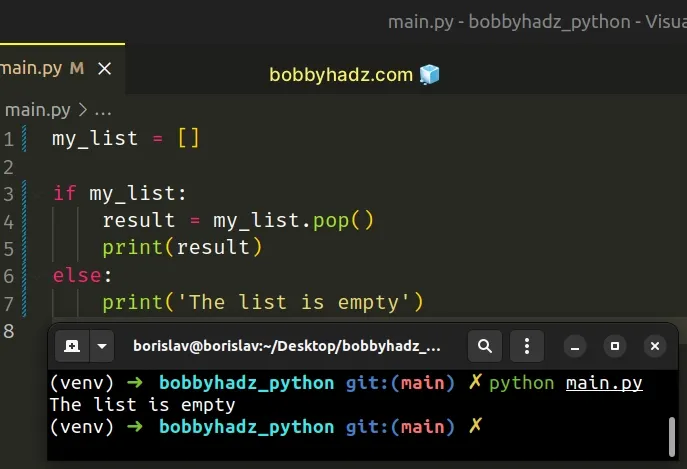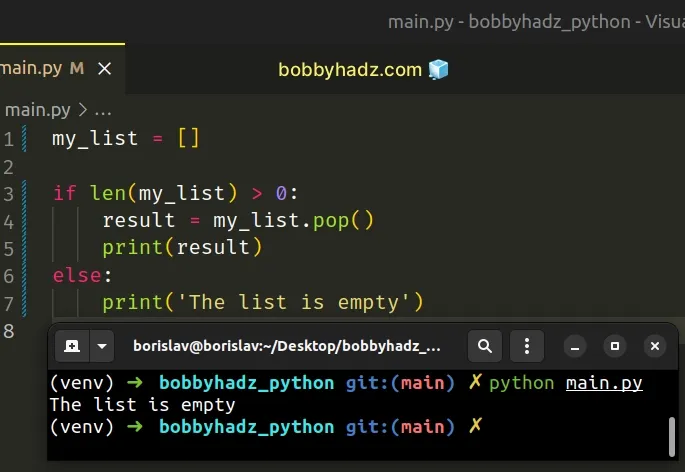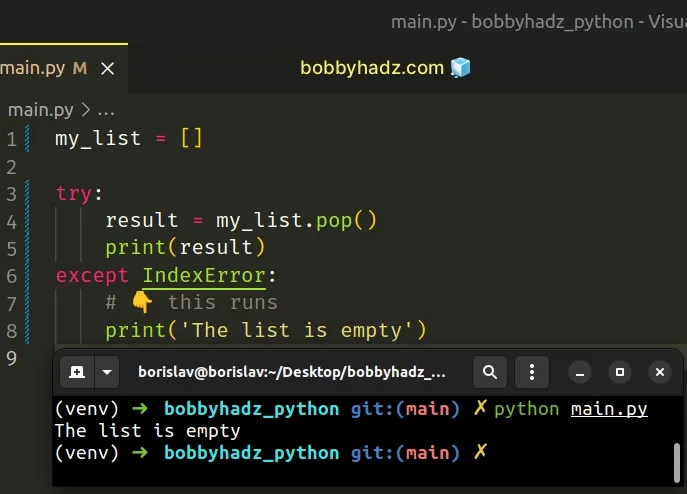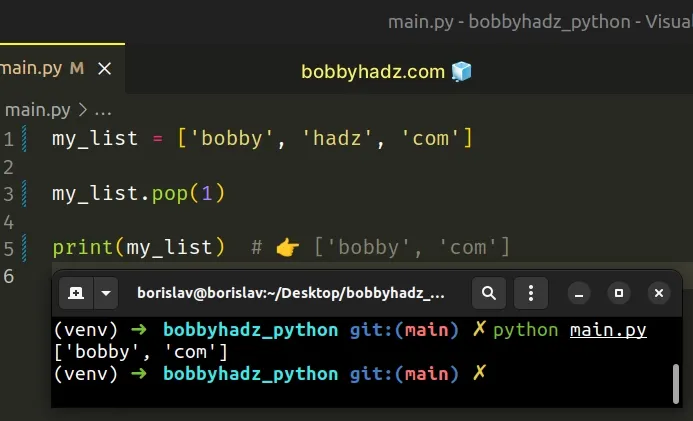IndexError: pop from empty list in Python [Solved]
Last updated: Apr 8, 2024
Reading time·3 min

# IndexError: pop from empty list in Python
The Python "IndexError: pop from empty list" occurs when we call the pop()
method on an empty list.
To solve the error, use an if statement to check if the list is truthy
before using the pop() method, or check if the list's length is greater than
0.

Here is an example of how the error occurs.
my_list = [] # ⛔️ IndexError: pop from empty list result = my_list.pop()

We called the pop() method on an empty list which caused the error.
# Checking if the list is truthy before calling pop()
One way to avoid the error is to use an if statement to check if the list is
truthy before using pop().
my_list = [] if my_list: result = my_list.pop() print(result) else: print('The list is empty')

You can remove the else block if you don't need it.
my_list variable is truthy before calling the pop() method.All values that are not truthy are considered falsy. The falsy values in Python are:
- constants defined to be falsy:
NoneandFalse. 0(zero) of any numeric type- empty sequences and collections:
""(empty string),()(empty tuple),[](empty list),{}(empty dictionary),set()(empty set),range(0)(empty range).
Empty lists are falsy and lists that contain at least 1 item are truthy.
# Checking for the list's length before calling pop()
Alternatively, you can check for the list's length to be more explicit.
my_list = [] if len(my_list) > 0: result = my_list.pop() print(result) else: print('The list is empty')

The len() function returns the length (the number of items) of an object.
The argument the function takes may be a sequence (a string, tuple, list, range or bytes) or a collection (a dictionary, set, or frozen set).
If the list has a length greater than 0, we can safely call the pop()
method.
# Using a try/except statement to handle the error
You can also use a try/except block to handle the error.
my_list = [] try: result = my_list.pop() print(result) except IndexError: # 👇️ this runs print('The list is empty')

If calling the pop() method on the list raises an IndexError, the except
block is run where we can handle the error or use the pass keyword to ignore
it.
Here is an example that uses a pass statement.
my_list = [] try: result = my_list.pop() print(result) except IndexError: pass
The pass statement does nothing and is used when a statement is required syntactically but the program requires no action.
# How the list.pop() method works in Python
The list.pop method removes the item at the given position in the list and
returns it.
my_list = ['bobby', 'hadz', 'com'] my_list.pop(1) print(my_list) # 👉️ ['bobby', 'com']

The code sample removes and returns the list item at index 1.
0, and the last item has an index of -1 or len(a_list) - 1.If no index is specified, the pop() method removes and returns the last item
in the list.
my_list = ['bobby', 'hadz', 'com'] my_list.pop() print(my_list) # 👉️ ['bobby', 'hadz']
# Additional Resources
You can learn more about the related topics by checking out the following tutorials:

